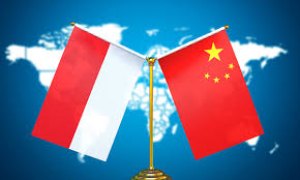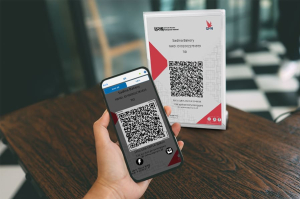Monitoring needed for transition period of subsidized fertilizer distribution reform
A researcher has suggested the imposition of a transition period for the implementation of government-planned major reforms in the subsidized fertilizer distribution system.
Mohamad Dian Revindo of the University of Indonesia’s Institute for Economic and Social Research (LPEM UI) emphasizes the importance of a transition period of at least six months to ensure that the implementation of this policy runs optimally.
The government is gearing up for the implementation of substantial changes in the subsidized fertilizer distribution system through a regulatory simplification plan. This planned reform, targeted for completion in December 2024, is aimed to improving the distribution system which has been considered inefficient.
“Distribution simplification is urgently needed, but it needs to be accompanied by comprehensive reforms such as strengthening national fertilizer production, improving the subsidy scheme, and literacy in fertilizer use by farmers. A transition period of at least six months is needed for this change to be effective,” Revindo said in a statement on Wednesday, December 18, 2024.
In this new scheme, instructions for distributing subsidized fertilizer will be given directly by the Ministry of Agriculture to Pupuk Indonesia Holding Company (PIHC). PIHC will then distribute fertilizer to the Farmer Group Association (Gapoktan), without requiring a decree (SK) from the regent or governor as before. This step is expected to accelerate the distribution process.
Revindo cited that this reform must start from upstream, namely strengthening domestic production. This can be done by securing the supply of phosphate or potash raw materials through long-term contracts or acquisition of mines abroad. Strengthening domestic production aims to ensure the availability of stable raw materials for national fertilizer producers.
In addition, targeted fertilizer allocation and simplification of redemption mechanisms are the main focuses of the reform. The government has increased the allocation of subsidized fertilizer to 9.5 million tons in 2025 as an initial step to strengthen food production and reduce the burden on farmers' costs. However, Revindo assessed that this amount is still insufficient to meet the ideal needs of rice farmers.
In terms of redemption of subsidized fertilizer, simplification of the distribution process is also considered important. Farmers only need to use a power of attorney with a photocopy of their ID card without having to get the signature of the village head. This is very useful for sharecroppers, elderly farmers, or farmers who are located far from kiosks.
He also proposed for clarity on the rules regarding fertilizer transportation costs from distributors to kiosks to farmers to ensure cost transparency. This reform also includes education for farmers regarding the proper use of fertilizer.
Proper fertilizer use
Revindo emphasized the importance of farmers understanding the rules for proper fertilizer use, starting from the type, dosage, time, to quality. This not only increases the harvest but also maintains the quality of the soil in the long term.
Gapoktan will play an important role in this new system. Therefore, assistance in terms of institutions, legality, and business management is considered very necessary so that the new policy can be implemented properly. Dissemination of the policy down to the village level is also a key factor so that farmers understand the changes that are occurring.
With gradual implementation and support for comprehensive reform, this policy is expected to be able to improve the distribution system of subsidized fertilizers, help farmers, and support the development of a sustainable agricultural sector in Indonesia.
"This subsidized fertilizer reform is expected not to be just a change in procedure, but a comprehensive reform that can provide a long-term impact on the sustainability of the agricultural sector," Revindo concluded.
Already have an account? Sign In
-
Start reading
Freemium
-
Monthly Subscription
30% OFF$26.03
$37.19/MonthCancel anytime
This offer is open to all new subscribers!
Subscribe now -
Yearly Subscription
33% OFF$228.13
$340.5/YearCancel anytime
This offer is open to all new subscribers!
Subscribe now






